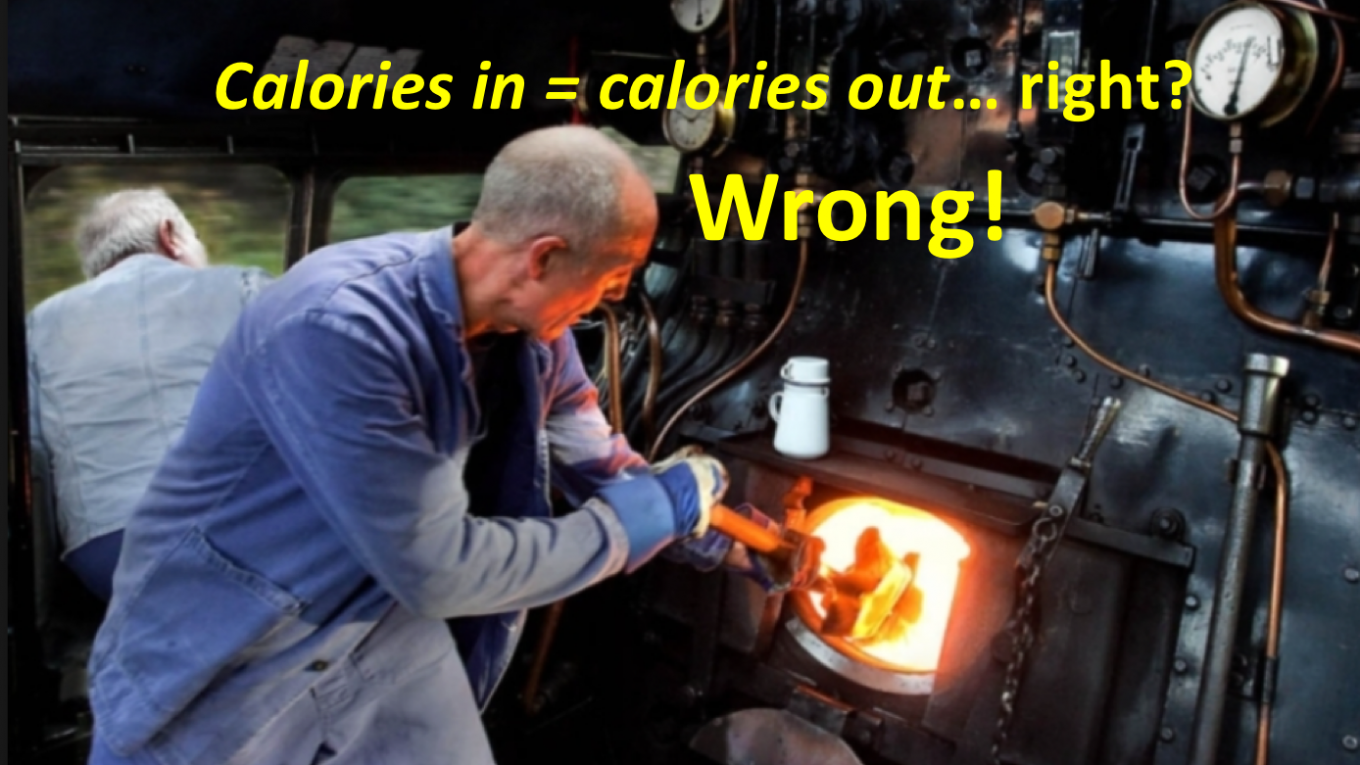Are calories a zero-sum thing?

It was Mr Micawber in Dickens’ novel David Copperfield who said – Annual income twenty pounds, annual expenditure nineteen pounds, nineteen shillings and six pence, result happiness. Annual income twenty pounds, annual expenditure twenty pounds ought and six, result misery
This profit/loss principal is often applied to calories and body weight too. It sees energy balance as a zero-sum thing; calories in must equal calories out. But guess what? It is wrong. A nicely organised study from New England found that people who had already lost some weight found it easier to keep the weight off if they cut the carbs, in particular sugary and starchy foods, especially processed starchy foods. They found that eating low-carb was directly related to how many calories the body burned each day. For every 10% reduction in carb intake there was a 52 Kcal increase in energy used. That worked out to over 200Kcals per day being burned, rather than stored as fat, in those eating low-carb (<20% of diet) compared eating higher-carb (>60% of diet). This high-carb levels remains standard official dietary advice even though low-carb dining is less fattening. The authors speculated that it may have something to do with brown fat, or leptins, or ghrelin hormones, or perhaps just the extra energy it takes to process higher levels of protein and fat. My hunch is that low-carb equals low-insulin, and because insulin is the hormone of storage, low-carb equals less storage (weight). Whatever the cause it does support the notion that cutting sugary and starchy carbs helps maintain benefits in those who have managed to lose weight.
Effects of a low carbohydrate diet on energy expenditure during weight loss maintenance: randomized trial. Cara B Ebbeling, Henry A Feldman, Gloria L Klein, Julia M W Wong, Lisa Bielak, Sarah K Steltz, Patricia K Luoto, Robert R Wolfe, William W Wong, David S Ludwig. BMJ 2018;363:k4583

